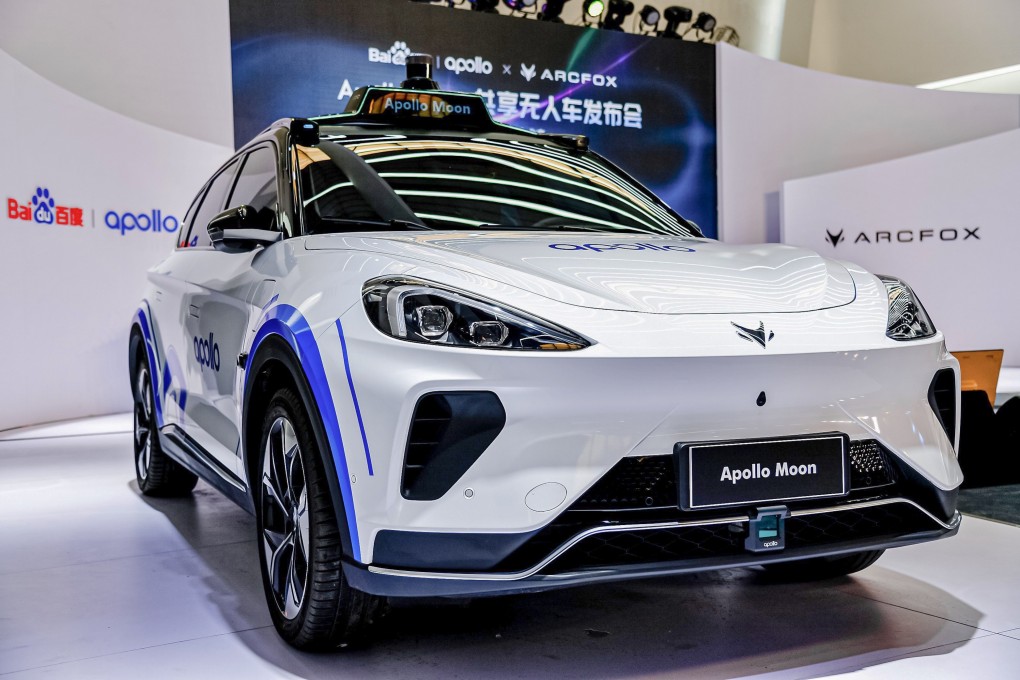Baidu to deploy 1,000 budget robotaxis on Chinese roads as it seeks ways to monetise autonomous driving technology
- Baidu’s fifth generation Apollo Moon has a per-vehicle cost of under 500,000 yuan (US$77,665), compared to 1 to 2 million yuan per vehicle previously
- In May, the search giant launched China’s first paid robotaxi service in Beijing’s Shougang Industrial Park

Baidu plans to deploy a fleet of 1,000 budget robotaxis over the next three years, cutting the per-unit cost of the vehicles by two thirds, as it explores ways to make money from its significant investment in autonomous driving.
The search giant’s autonomous driving unit Apollo announced on Thursday a partnership with ArcFox, the luxury electric vehicle brand of BAIC Group, to bring Baidu’s fifth generation Apollo Moon robotaxis to Chinese roads.
“The launch of Apollo Moon is an important breakthrough signifying the powerful linkage between China’s leading autonomous driving technology and the most advanced smart vehicle platform,” said Zhenyu Li, senior corporate vice-president of Baidu and general manager of its Intelligent Driving Group (IDG).
Apollo, first announced in 2013, is a key element of Baidu’s future plans. The company said it has 2,900 patents for intelligent driving and 244 relevant road testing licenses in China, accumulating more than 12 million km of test mileage.

Commercial prospects for robotaxi services remain uncertain in the near term due to the immaturity of the technology, the absence of legislation to clearly define responsibility in case of a self-driving accident, and persistently high costs associated with the complex self-driving systems.